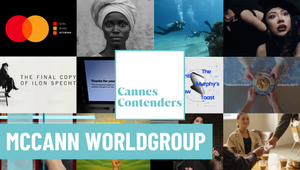
The Political Horizon for Brand Britain: Learnings from across the Political Spectrum

The Politics of Brand Britain
With the recent local elections, the Queen’s speech, and the ongoing Brexit negotiations, there is little doubt that politics is on the minds of Britons today. As is naturally the case with any election, a host of socio-political divisions have been on display. Widening divides between the left and the right, and a shrinking middle ground, have become par for the course in British society. Talking to people across the political spectrum, our recent Truth about Britain study reveals some notable differences – and inspiring points of agreement.
Whether you’re a British conservative or a British liberal, chances are that you have read news about government or politics within the last few hours (67% vs 66%). However, the value and quality of that news will be perceived differently depending on where on the political spectrum you find yourself. The most conservative of British respondents believe that their newsfeeds are largely balanced, while the most liberal tend to view the news that they read leaning right. Whether one leans conservative or liberal, getting to the truth requires an average review of three different news sources.
Aside from civic duty, Britons view the international role of national politics with differing levels of importance. Those who identify as very conservative are most likely to believe that UK national politics is very important for the world at large (57%). Compare this with only 26% of the most liberal believing this to be the case. This corresponds to an understanding of Britain’s role on the global stage. At a general level, when asked to select the role that Britain might play, the most common view is that of a ‘leader’. However, this choice is largely driven by more conservative and moderate respondents, while more liberal respondents tend to see Britain’s primary role on the world stage as that of a ‘jester’.
The Scale of the Challenge
Beyond the current election cycle, there are challenges that transcend political leanings. For example, both conservatives and liberals agree that society today is less ethical than it was 20 years ago (49% and 44% respectively). All factions also agree on when society was last at its most moral status: the 1950s, a time when then prime minister MacMillan claimed, “some of our people have never had it so good.” It was the age of television, British automotive dominance, rock-and-roll, and social normativity.
What’s driving this perceived moral decline today? The source varies depending on one’s political orientation. Liberals are most likely to say that national leaders setting a bad example (1/5) is the main cause of this ethical unravelling; conservatives are most likely to say parents not being as strict with their children (1/5). But, for everyone across the political spectrum, the internet (1/5) is increasingly seen as a top-ranking threat to the future of the British moral fabric.
Brands as Political Actors in Britain
Understanding these political divergences and convergences is increasingly important for brands in Britain. Not only do they provide a gauge by which to understand what’s most important to Britons today, but they also enable a better understanding of the kind of role that a brand can play on the national scene.
In 2017, 52% of the national population were open to brands making political statements. In 2022, we see that 66% of the national population is open to political statements from brands. The pandemic, Black Lives Matter, and the war in Ukraine have all expanded the remit and the expectation for brands in the public and political spheres. To be sure, 4 out of 5 of the most liberal Britons are more open to political action from brands, while 3 out of 4 of the most conservative are ready for the same.
In fact, brands are also being evaluated for the examples they might provide to political actors. This is a two-way street, with brands and political actors mutually creating the conditions for the strength of the nation. Both conservatives and liberals believe that the brand which possesses the values that this country as a nation could learn from most is John Lewis, a national stalwart that holds its own among national and international brands.
The top brands that each group believes possess the values that this country as a nation could learn from most:
- Conservatives: 1: John Lewis 2: Amazon 3: Apple
- Liberals: 1. John Lewis 2: Sainsbury’s 3: Aldi
- Moderates: 1. John Lewis 2: Microsoft 3: Apple
However, if one brand were to be put in charge of the country, conservatives and liberals would both most likely vote for Apple, while moderates would vote for Google. Brands and political actors should ask themselves: what are these companies doing that generate that level of commitment and aspiration?
Unifying the Nation
Of course, for any national project to work, agreement is required across many fronts. Based on our study, there are three important areas that unite the nation across the political spectrum.
The first and most important expectation is that of inclusivity, accessibility, and universality. In our ethnographic research, we tasked the participants in our national community with the responsibility of developing their very own social policy in any sector of their choice. Our groups developed policies that all pointed toward the value of inclusion with titles like: “The Inclusive Kingdom”, “Bring the World to the People” and, “Holistic Education for All”.
One of our community members who lives in Lincolnshire and works for the NHS told us: “There are groups popping up for all sorts of people who may need support, ranging from a men-only mental health group, food banks, religious groups, and other independently run groups. Being able to support the community this way has done such great things and the town and people feel much more hopeful in general.”
Secondly, there is a rising consensus in Britain that the greatest challenge ahead is that of climate change. Across the political spectrum, the climate crisis registers as the number one issue on the horizon (ranked 12 in 2017). This worry no doubt only contributes to the universal view that the word that best describes Britain today is ‘uncertain’.
And, lastly, even the most extreme political actors – from the very conservative to the very liberal – share the belief that “It is important that we serve as a positive example for the rest of the world” (85% vs 84%). With this in mind, brands and political actors alike can take note and look to crafting a more united, ethical, inclusive, and truthful Britain.
Authors:
Rodney Collins, PhD, SVP, Director, McCann Worldgroup Truth Central
Freddie Sheffield, Research Executive, McCann Worldgroup Truth Central
Methodology
McCann Worldgroup's Truth About Britain 2022 study builds on 15 years of trended data and research about the nation’s cultural, social, and political fabric. Conducted by McCann Worldgroup Truth Central, the organisation's global intelligence unit, the quantitative study surveyed more than 1,200 people (nationally representative across regions, ethnicity, age, LGBTQ+ status, disability). Truth Central also built an online ethnographic community of 55 individuals from across the nation. For more information, visit truthaboutbritain.mccannworldgroup.com or email TruthAboutBritain@mccann.com















